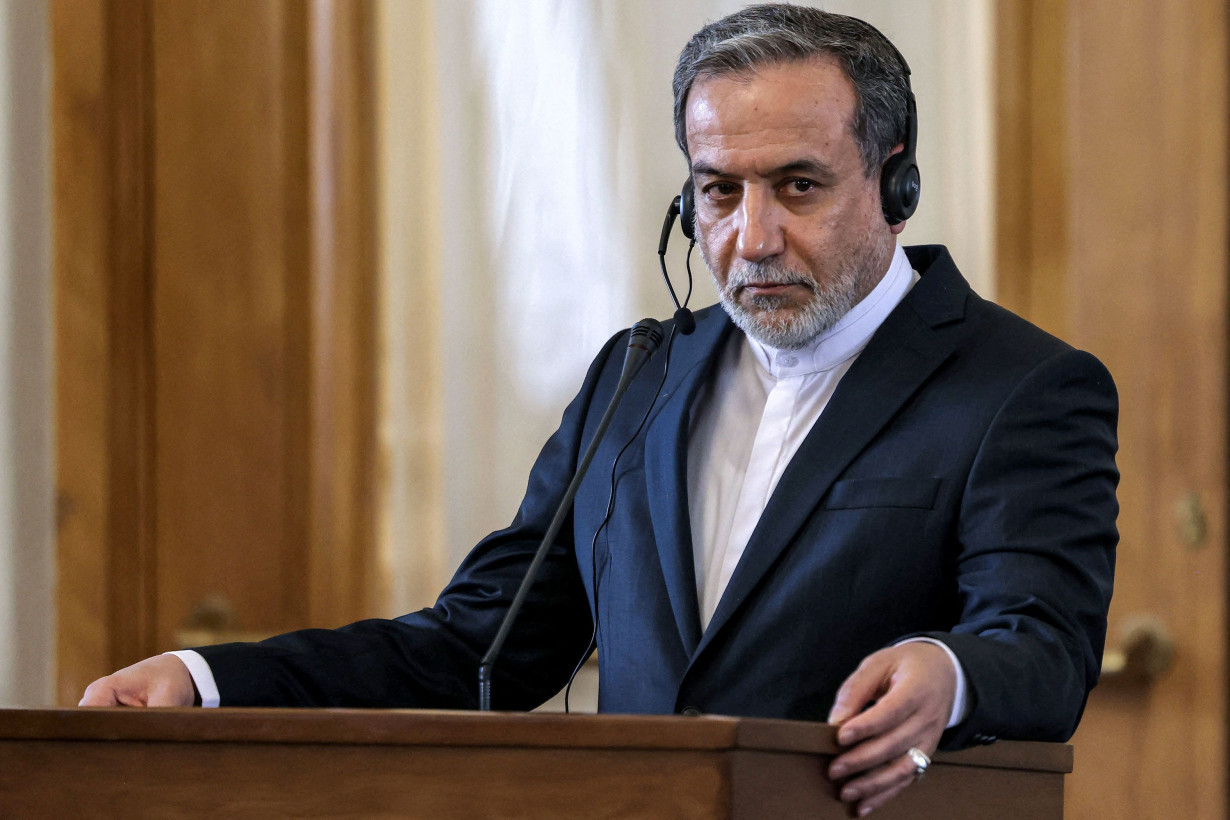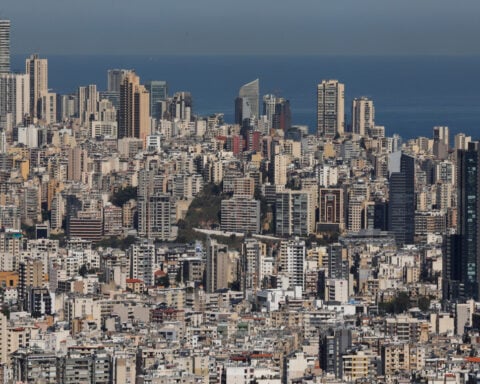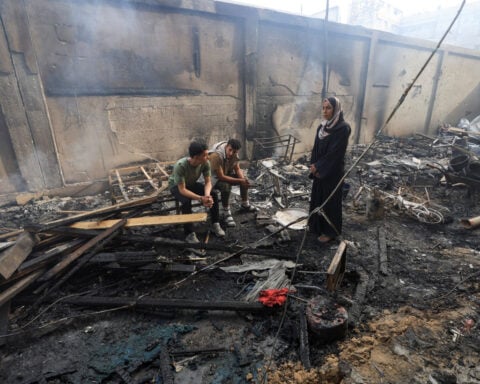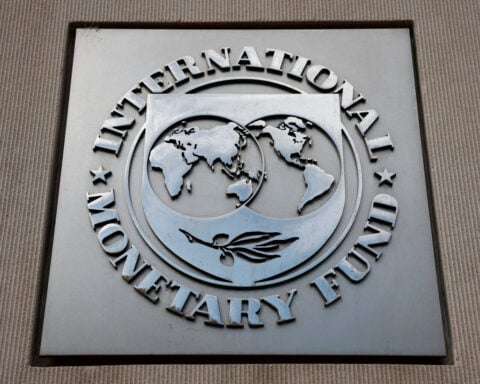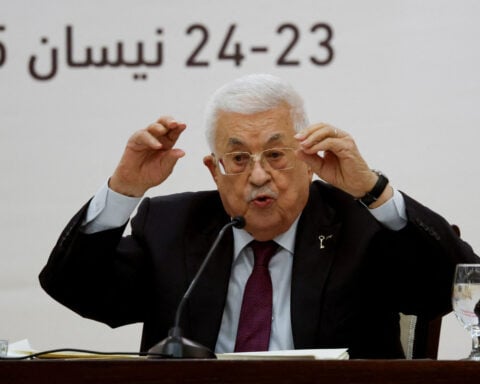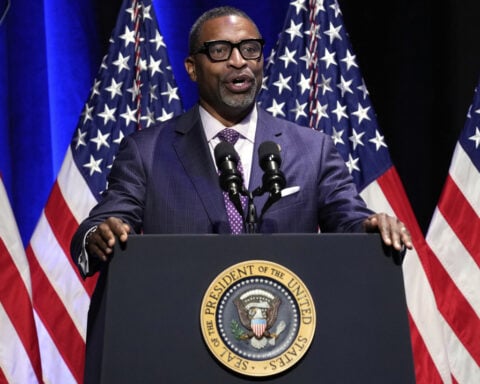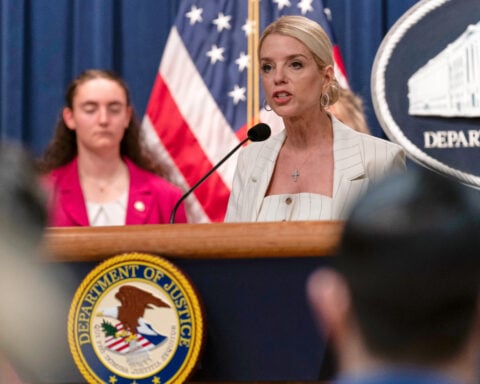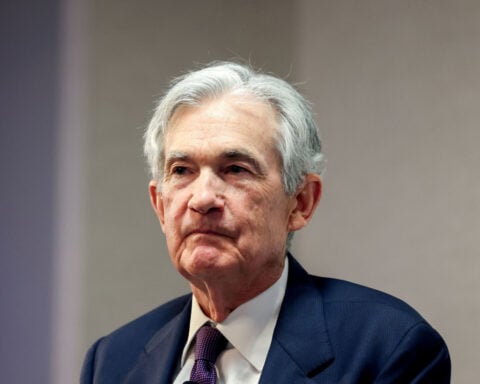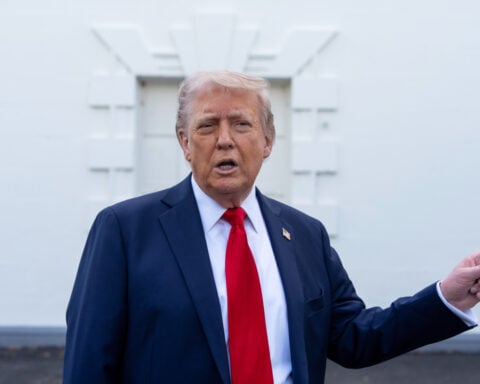Abu Dhabi, UAE (CNN) — President Donald Trump was speaking to reporters alongside Israeli Prime Minister Benjamin Netanyahu in the Oval Office on Monday when he made a surprise announcement: Direct nuclear talks are underway between the United States and Iran and a “very big meeting” will take place on Saturday.
If true, these would be the first direct talks between the two nations since 2015, when they signed a landmark nuclear deal under the Obama administration, which Trump ditched three years later.
Iran denies that negotiations are direct, insisting they will be mediated by the Gulf Arab nation of Oman, where Saturday’s talks will take place. Direct or not, the talks represent a breakthrough between the Islamic Republic and a US administration led by a president whom American officials accuse Tehran of once plotting to assassinate.
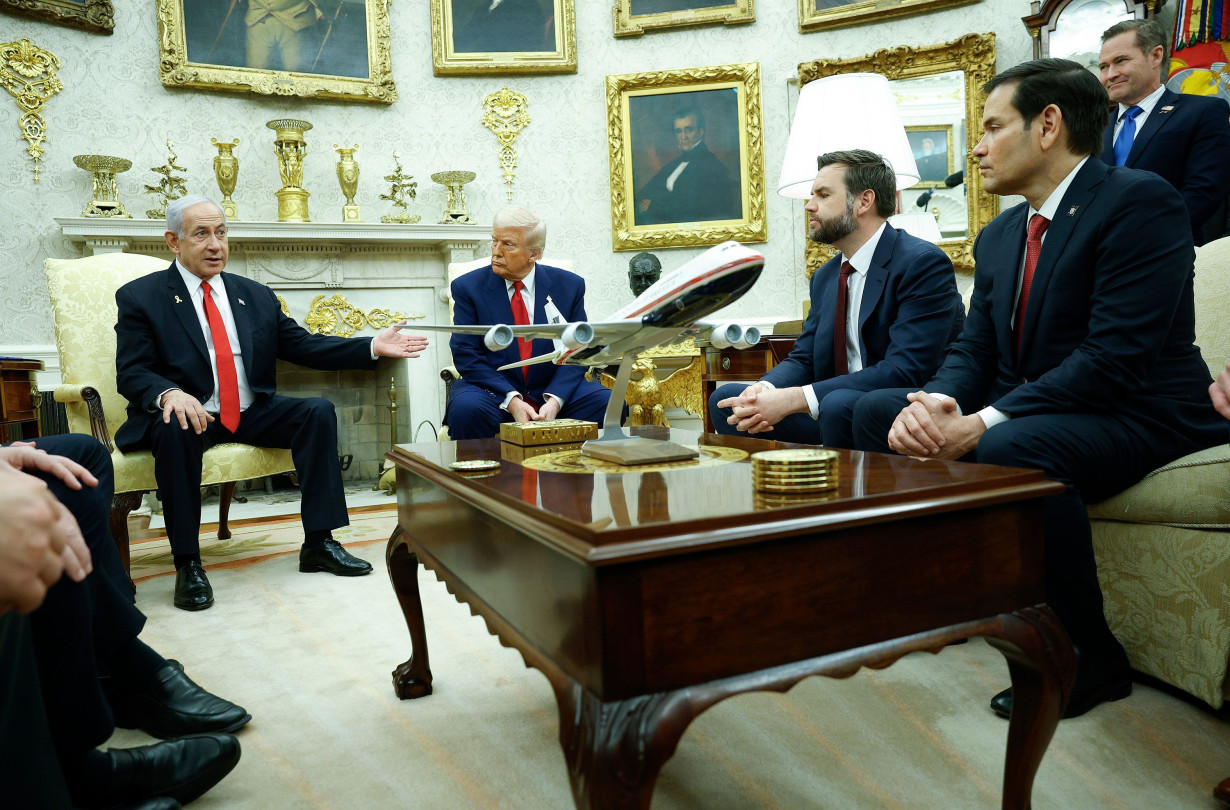
Trump has pledged to deliver a far “stronger” nuclear deal than Obama’s. His administration has said it will push for the complete dismantling of Iran’s nuclear program, rather than merely restricting it to peaceful purposes. Israel backs this demand – but Tehran has dismissed it outright as a non-starter.
Here’s what we know about the talks, why they may be happening now and what’s at stake.
What each side is saying
Trump on Monday said a “very big meeting” would take place Saturday “at the top level,” adding that “everybody agrees that doing a deal would be preferable to doing the obvious,” referring to potential military action against Iranian nuclear sites.
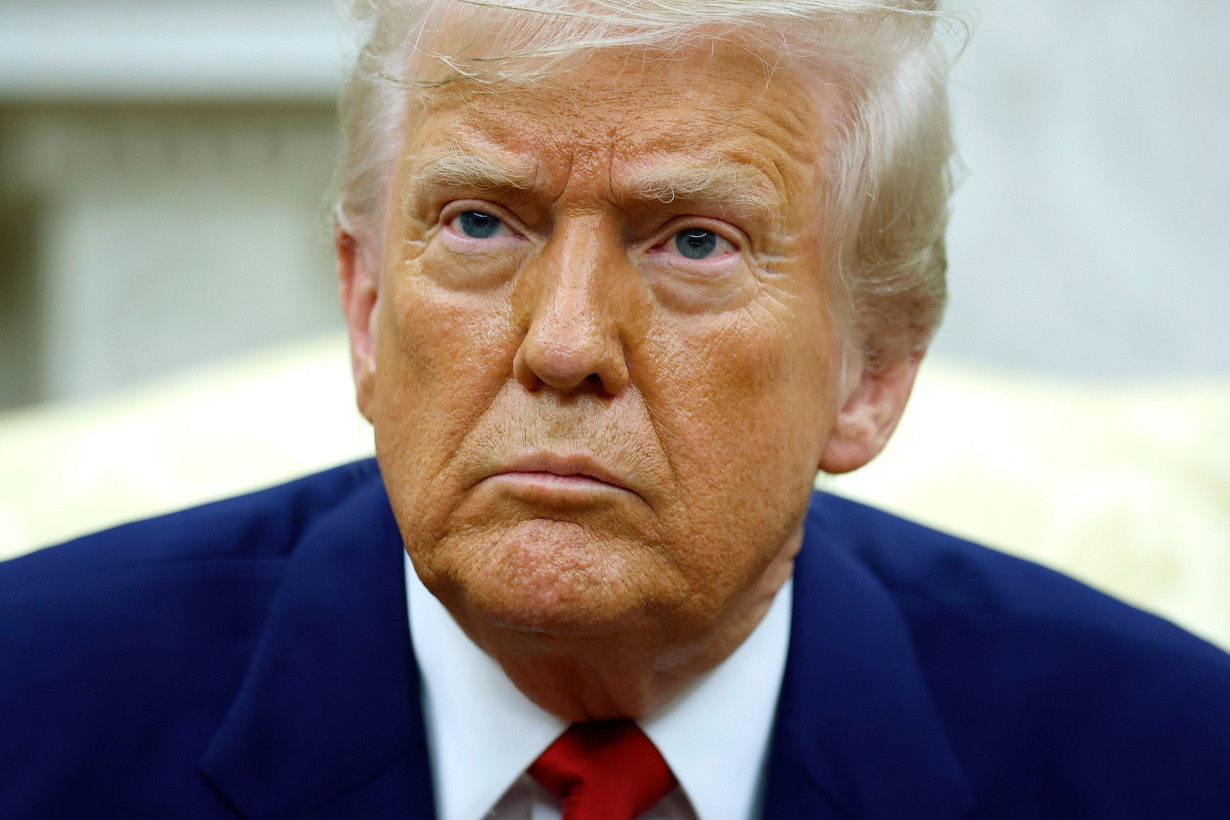
US envoy Steve Witkoff will be leading the US delegation, according to the US State Department, and Araghchi will represent Iran in indirect talks moderated by Oman officials, according to Iranian officials.
On Wednesday, Araghchi said in a Washington Post op-ed that his country is ready to strike a peaceful deal with the US through diplomacy, which could result in a “trillion-dollar” business opportunity, and avoid a costly US military involvement in the region.
He wrote that the “ball is in America’s court” to achieve peace and normalize relations, which could include lucrative business opportunities, in an apparent attempt to speak to Trump’s business background.
Araghchi also made clear the talks would be indirect, writing that “indirect negotiations is not a tactic or reflection of ideology but a strategic choice rooted in experience,” especially when faced with “a significant wall of mistrust.”
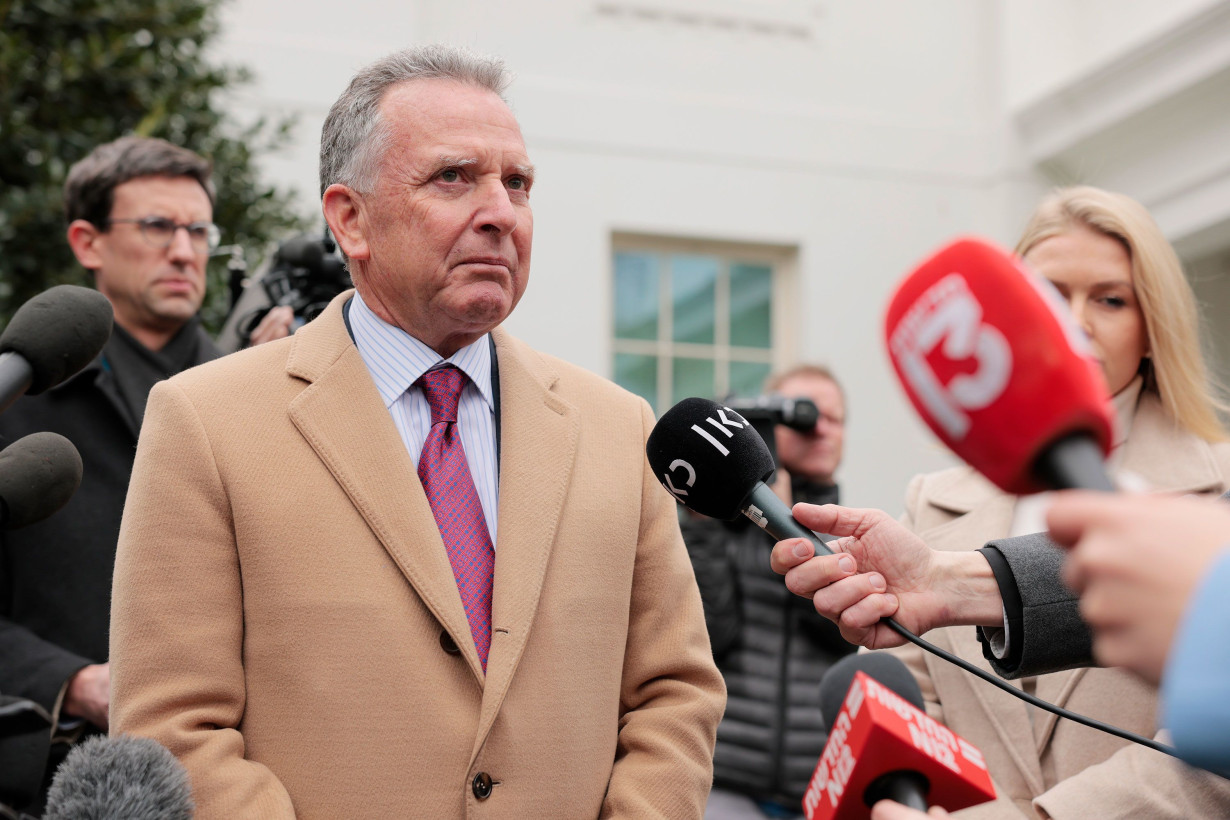
Hossein Mousavian, a former Iranian diplomat and ex-nuclear negotiator, said that Iran and the US are likely to “initially start the negotiations indirectly, and after an hour or two, if the outcome is positive, Iranian and American representatives will begin direct talks.”
“It seems that Washington and Tehran have adopted a wise approach, and there is a chance for an agreement,” he wrote on X.
How the two sides got here
A nuclear deal was reached in 2015 between Iran and world powers, including the US.
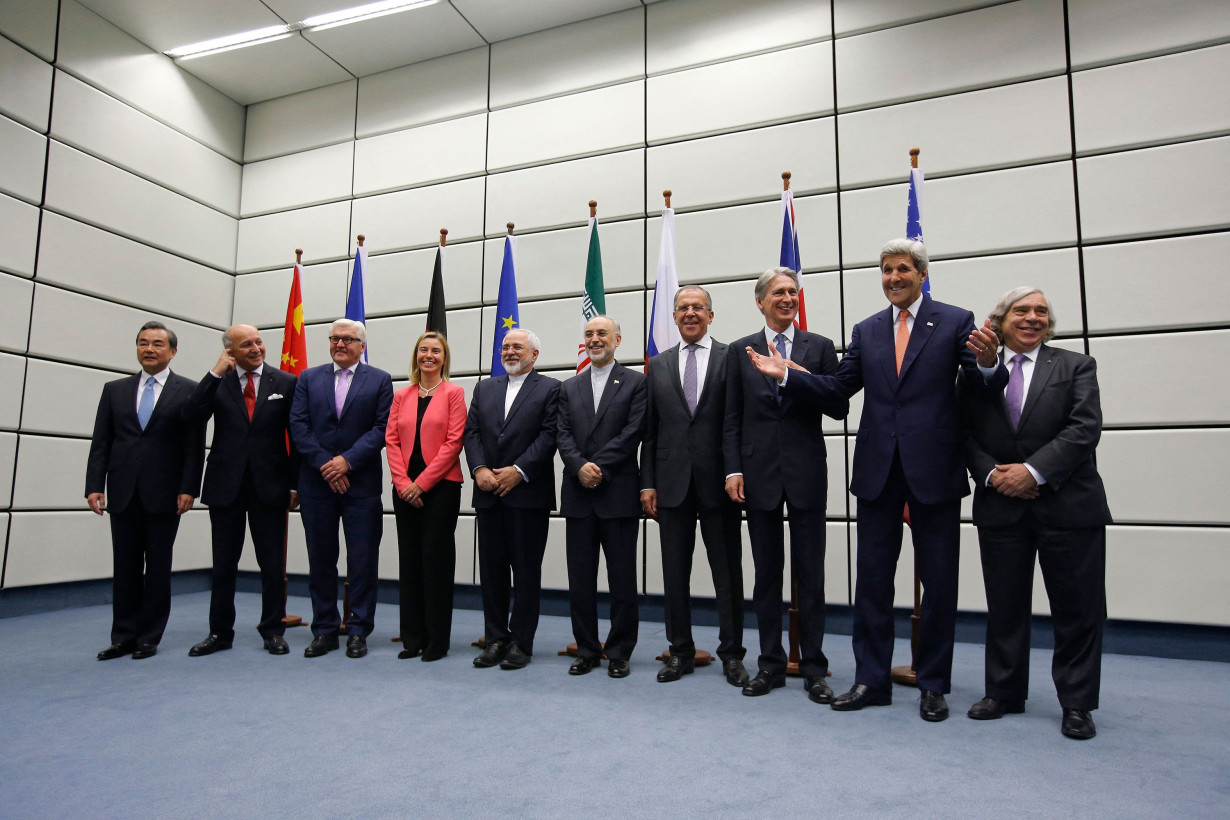
Under the deal, Iran had agreed to limit its nuclear program in exchange for the lifting of sanctions.
That agreement was, however, abandoned by Trump in 2018 during his first presidential term. Iran retaliated by resuming its nuclear activities, and has so far advanced its program to alarming levels.
In December, Rafael Grossi, the head of the United Nations nuclear watchdog, told Reuters that Iran was “dramatically” accelerating its enrichment of uranium to up to 60% purity, closer to the roughly 90% level that is weapons grade. In January, Grossi again warned that Iran was “pressing the gas pedal” on its uranium enrichment.
Iran insists its nuclear program is peaceful.
Last month, Trump sent a letter to Iran’s Supreme Leader Ayatollah Ali Khamenei proposing negotiations on a new nuclear deal, making it clear that Iran had a two-month deadline to reach an agreement, a source familiar with the letter’s contents told CNN.
Days later, Iranian President Masoud Pezeshkian said the Islamic Republic rejected direct negotiations with the US. He said however that Iran’s response, delivered by Oman, left open the possibility of indirect talks with Washington.
“We don’t avoid talks; it’s the breach of promises that has caused issues for us so far,” Pezeshkian said in televised remarks. “They must prove that they can build trust.”
Iran has in recent weeks been vocal with its concerns about striking a nuclear deal with Trump, who it says has a history of backtracking.
Pezeshkian was elected last year on a reformist agenda that pledged to mend the country’s relationship with the world and ease sanctions that have crippled the economy. But he also faces a powerful hardline establishment, including Khamenei, that distrusts the US and is wary of engaging with it.
The value of Iran’s currency, the rial, increased off the back of the news of talks after recording a record low just weeks ago.
What’s on the agenda of talks?
US officials have said that Trump is demanding that Iran dismantle its entire nuclear program, and not just accept restrictions on its ability to build a nuclear weapon, as it did in 2015.
The 2015 deal allowed Iran to “fully enjoy its right to nuclear energy for peaceful purposes under the relevant articles of the nuclear Non-Proliferation Treaty (NPT),” according to the treaty. The NPT, to which Iran is signatory, is an international agreement aimed at preventing the spread of nuclear weapons.
Experts have said that complete denuclearization would be a non-starter for Iran given that the nuclear program is its last remaining point of leverage against the West after its regional proxies have been weakened.
Last week, National Security Adviser Michael Waltz told CBS’ “Face the Nation” that Trump will demand a “full dismantlement” of Iran’s uranium enrichment program.
“Iran has to give up its program in a way that the entire world can see,” Waltz said, adding that Tehran must agree to “walk away completely” from its pursuit of nuclear weapons.
Waltz added that this time, the deal won’t be “some kind of tit for tat that we had under the Obama administration, or Biden.”
Asked whether the deal would be similar to the 2015 agreement, Trump on Monday told reporters that “it’ll be different, and maybe a lot stronger.”
If talks are not successful, he added, “I think Iran’s going to be in great danger… I actually think it’ll be a very bad day for Iran.”
How does Israel feel about it?
The sudden revelation of the upcoming US-Iran talks at the press conference following Trump and Netanyahu’s meeting appeared to surprise the Israeli prime minister, the smile quickly vanishing from his face as he looked toward his team of advisers.
News of the talks are “certainly not” to Israel’s liking, two sources familiar with the matter told CNN.
It’s unclear if Netanyahu was given advance notice of the US-Iran talks or if he was consulted ahead of time, the sources said.
Sat beside Trump at the Oval Office, Netanyahu touted a Libya-style nuclear deal between the US and Iran, which in 2003 dismantled the North African nation’s nuclear program in the hopes of ushering in a new era of relations with the US after its two-decade oil embargo on Muammar Qaddafi’s regime.
“If it can be done diplomatically, in a full way, the way it was done in Libya, I think that would be a good thing,” Netanyahu said.
Following denuclearization, Libya eventually descended into civil war after a 2011 NATO-backed uprising that toppled and killed Qaddafi. Iranian officials have long warned that a similar deal would be intended to weaken Iran and eventually overthrow its regime.
Asked about a Libya-style deal, Araghchi told Iranian media on Tuesday that Israel’s hopes for what Iran’s nuclear program should look like would be disregarded.
“When it comes to the Zionist regime’s hopes of what a deal will look like and what they have suggested, that’s their hopes and ultimately will not be factored in,” he said.
Netanyahu had vehemently opposed the 2015 nuclear deal, saying it did not prevent Iran from building a nuclear weapon.
Why now?
Since the last US-Iran talks, Tehran has seen its ability to project power in the region significantly curtailed after Israel struck severe blows to its allied regional militias and launched direct attacks on Iranian soil.
In Gaza, Israel continues to pound the enclave as it seeks to eradicate Hamas. In Syria, which Iran used as transit for weapons to proxies, Tehran’s ally Bashar al-Assad has been deposed, and Israel continues to attack the country and take new territory. In Iraq, the US has retaliated against attacks by Iran-backed militants on its assets there. And in Lebanon, a series of Israeli attacks on the country have decapitated the militant group Hezbollah.
In Yemen, where Iran’s last remaining ally, the Houthi rebel group, remains standing, the US is intensifying airstrikes.
Last year, Iran and Israel exchanged two rounds of tit-for-tat attacks, the first time either side has directly attacked the other. Israel is said to have taken out Iranian defenses in one of those attacks.
“Remember, the Iranians’ air defenses have been eviscerated by that attack from Israel. They’re open to attack today,” Witkoff told journalist Tucker Carlson in an interview last month.
The-CNN-Wire
™ & © 2025 Cable News Network, Inc., a Warner Bros. Discovery Company. All rights reserved.

 Trump has begun another trade war. Here's a timeline of how we got here
Trump has begun another trade war. Here's a timeline of how we got here
 Canada's leader laments lost friendship with US in town that sheltered stranded Americans after 9/11
Canada's leader laments lost friendship with US in town that sheltered stranded Americans after 9/11
 Chinese EV giant BYD's fourth-quarter profit leaps 73%
Chinese EV giant BYD's fourth-quarter profit leaps 73%
 You're an American in another land? Prepare to talk about the why and how of Trump 2.0
You're an American in another land? Prepare to talk about the why and how of Trump 2.0
 Chalk talk: Star power, top teams and No. 5 seeds headline the women's March Madness Sweet 16
Chalk talk: Star power, top teams and No. 5 seeds headline the women's March Madness Sweet 16
 Purdue returns to Sweet 16 with 76-62 win over McNeese in March Madness
Purdue returns to Sweet 16 with 76-62 win over McNeese in March Madness
